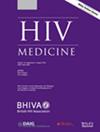Pneumocystis jirovecii pneumonia–Immune reconstitution inflammatory syndrome: A review of published cases
Abstract
Background
Immune reconstitution inflammatory syndrome (IRIS) can occur in patients with HIV after commencing antiretroviral therapy. Tuberculosis–IRIS is the most common, and Pneumocystis jirovecii pneumonia (PJP)–IRIS accounts for only 2.7%–4% of IRIS cases. The prognosis and management of IRIS is well studied in other opportunistic infections but is ill defined for PJP-IRIS, and no guidelines exist. We reviewed the literature to consolidate the available data for PJP-IRIS to formulate recommendations for the diagnosis and management of this condition.
Methods
We performed a literature review of cases of PJP–IRIS and included cases in Australia that had not been previously published. We searched the Web of Science, MEDLINE, Embase, SCOPUS databases and grey literature sources for studies reporting cases of PJP–IRIS between January 1981 and August 2024. We provide a synthesis of published cases evaluating pathogenesis, mortality, and therapeutic options.
Results
In total, 51 patients were identified from 25 data sources. Two mortalities were described. We found that 22% of PJP–IRIS cases required support in the intensive care unit. Antimicrobial treatment for PJP was given in 32 cases, and trimethoprim–sulfamethoxazole was the most prescribed. Extending the duration of PJP therapy beyond the usual 21 days did not appear to affect outcomes. Corticosteroids were given in 26 (52%) cases, not given in 12 cases (20%), and use was not stated in 13 cases (26%). The type and dose of steroid used varied and was described in 15 cases.
Discussion
Mortality in PJP–IRIS appears lower than in IRIS secondary to other opportunistic infections. Prompt treatment with corticosteroids at a dose proportionate to disease severity is recommended. Extending antimicrobials for PJP beyond 21 days does not appear to offer clinical benefit in patients with PJP–IRIS. With the rise of immunotherapy, new treatments could be on the horizon for PJP–IRIS.

 求助内容:
求助内容: 应助结果提醒方式:
应助结果提醒方式:


